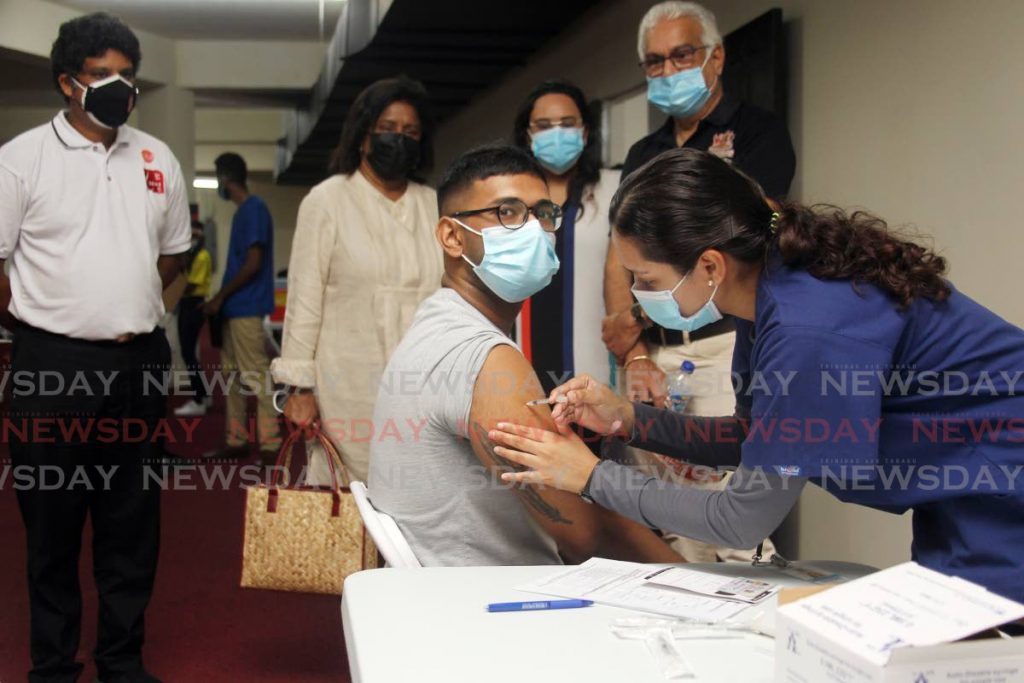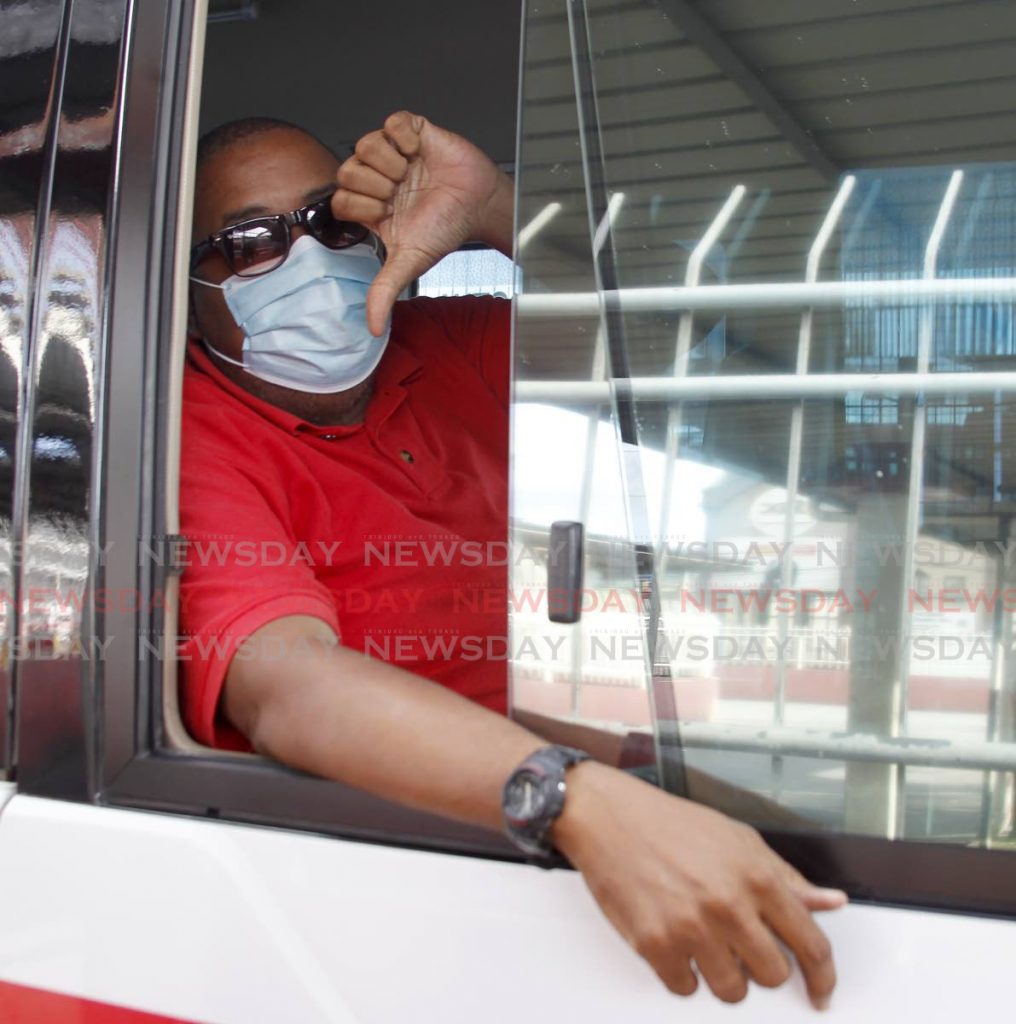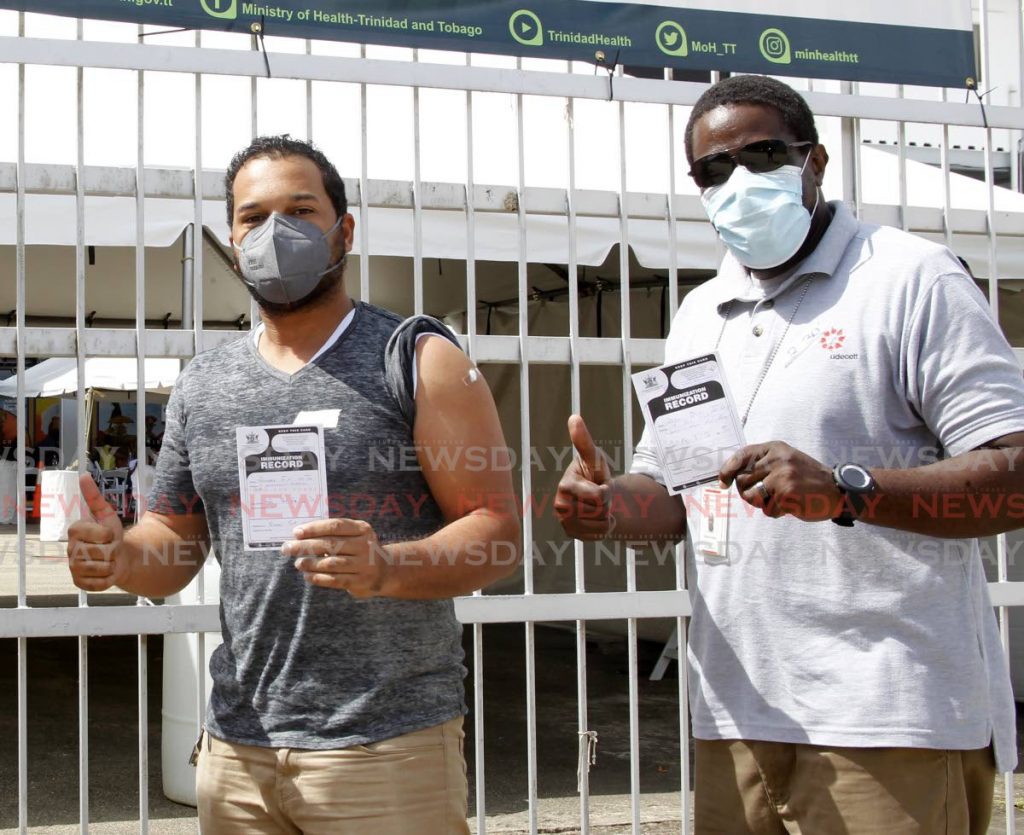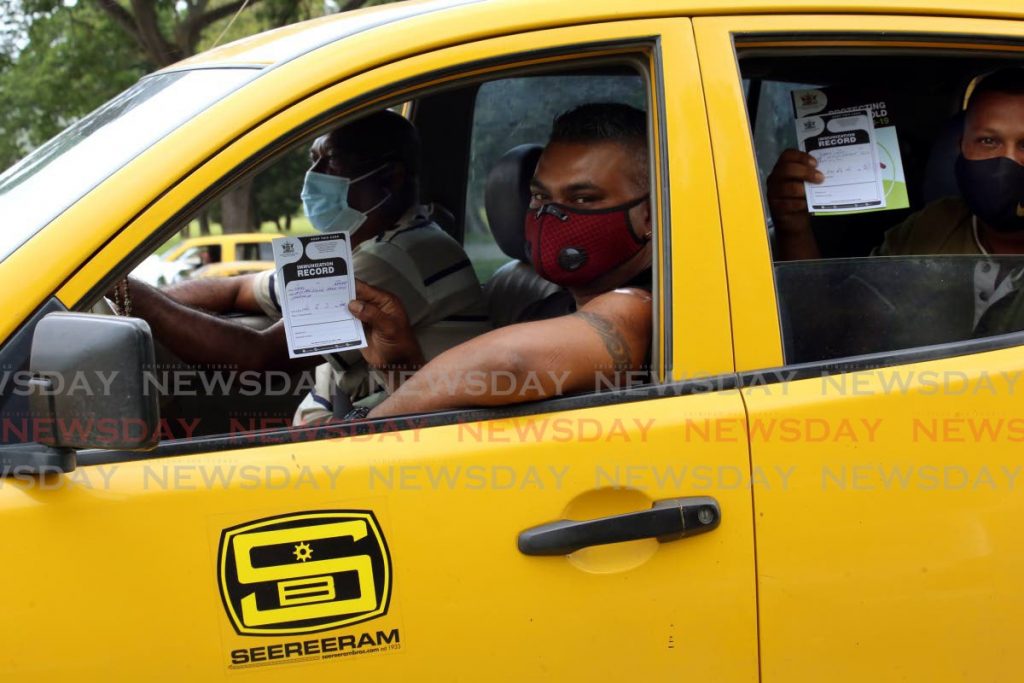Employers vs employees rights: Why national vaccination policy necessary for covid19 recovery

Getting back to some type of normalcy as the world battles the covid19 pandemic requires vaccination, according to the medical experts both at home and internationally.
Trinidad and Tobago as of Tuesday afternoon, the Ministry of Health indicated, has fully vaccinated 142,875 people while 226,939 people have received their first jab and were awaiting the second. The shipment of 800,000 doses of Sinopharm vaccine from China on Tuesday was another step towards attaining herd immunity.
As businesses reopen and employees return to the workplace, many people remain concerned about the requirements to continue employment, and the mechanisms in place to treat with the unvaccinated and vaccinated. Will vaccines become a requirement and is it enforceable?
Business Day spoke with Labour Minister Stephen McClashie who said the Industrial Relations Advisory Committee (IRAC) will present a report on the issue on Monday.
He was unable to give exact details of the report but previously said the report would ensure employees' and employers' rights were maintained in the pandemic, including workers who are not currently covered by the Industrial Relations Act and other employment legislation.
“The committee has also developed guidelines on remote working and is underway in providing practical guidance on matters of vaccination in the workplace and managing crises to ensure that the rights of workers are maintained in the current situation from an industrial relations perspective,” he explained in a Labour Day message this year.
McClashie said once the report was received, deliberated with the National Tripartite Advisory Council (NTAC) and presented to Cabinet, it would be made national policy and be available to the public.

On Tuesday he added that, “Globally we have had this problem in almost every society and none of these countries have yet come up with a policy position on vaccines, not even the ILO (International Labour Organisation).
“So, it's not an easy set of decisions to make, given the ramifications, both in terms of public health and in terms of livelihoods, that would have.”
He said it was not a knee-jerk decision.
Earlier this year, at a TT Chamber of Commerce webinar, president of the Industrial Court Deborah Thomas-Felix said an employer cannot unilaterally change its policies if the person was already working there and a recognised majority union was present. The employer can, however, make changes to the terms and conditions for a person seeking new employment at the establishment. It was up to the person to decide whether they wanted to continue with their application.
Businesses have been encouraging employees to get vaccinated. Several areas in the private sector — Supermarkets Association, TT Manufacturers Association, TT Contractors Association, food and beverages stakeholders among others, have partnered with government for the rollout of a “vaccinate to operate” initiative.
Already the construction sector was back to work and on July 19 food establishments will be allowed curbside pick-up, takeout and delivery services.
Those businesses have been also clamouring to ensure they were ready for the partial reopening by fixing, cleaning and restocking, as well as making sure their staff were equipped through vaccinations. But how far were some companies willing to take the process for their reopening?
On Tuesday, Marios Pizzeria in an internal memo signed by its CEO Roger Harford said while vaccination was not mandatory or enforceable, only vaccinated staff will be prioritised to work from July 19.
He said the survival of the business was threatened by pandemic and the high costs associated with reopening after a lockdown and were putting measures in place to safeguard the business and employees.
“Fully vaccinated staff and staff in receipt of their first vaccination shot will be required to provide proof of vaccination by presenting an original copy of their immunisation card to their respective manager upon arrival at work.
“Employees who do not want to be vaccinated for any reason; your decision will be respected. In these situations, staff continue temporary layoff until alternatives are explored by the company in consultation with the employee regarding employment.”
Harford further said staff with medical reasons will have to provide records of not being able to be vaccinated from the Certified Medical Practitioners Board. An incentive of $100 transportation fee and assistance in setting appointments were offered.
Similarly, Prestige Holdings, the local franchise holder for KFC, Subway, Pizza Hut, Starbucks and TGI Friday restaurants, offered incentives of $150 to cover out of pocket expenses to people who took the vaccines.

Unions have been closely monitoring companies, both unionised and non-unionised in treating with vaccination policies which were not mandatory by national law.
Amalgamated Workers Union (AWU) chief labour relations officer Janice Rogers said the language which some employers used can be seen as manipulating to workers to take the vaccines.
Many of the workers in the food and beverage industries were not unionised and while employers said it was not forced or mandatory, the ultimatum in retaining a job showed otherwise, Rogers said.
She added that while some employees were not unionised, they would still be able to challenge the matter if they felt aggrieved.
“Vaccination is a personal choice, but to make it mandatory that a worker must be vaccinated to return to work is bordering on infringing on the workers’ rights as human being. To make it a condition to return to work is harsh, especially in the current economic situation.
“The employer can change their terms and conditions but does not mean that the workers cannot challenge it if they feel aggrieved.”
President of the National Union of Government and Federated Workers (NUGFW) James Lambert told Business Day that terminating someone’s service or putting them in temporary layoff because they refused the vaccines was not right.
“This will face the court because I (employee) have been working and producing with you (employer) and failure to take the vaccine, which is not law, is not sufficient reason (for layoffs). The union already has a few situations to deal with like that. As unions we will be ready to take up the matter to send to the Labour Ministry or otherwise.
“Similarly, if someone has medical complications and cannot take the vaccine, they must produce valid documentation outlining this,” Lambert said.
He lobbied for proper sensitisation through seminars, consultations and discussions to encourage employees to get vaccinated.

Lambert said, “While it is not compulsory, I would advise everyone to take the vaccine because it is of paramount importance that we safeguard everyone’s health.
“I do not believe sending people home is the right approach. If I (employee) have been working somewhere for the past 10 or 15 years, and government has not made it (covid19 vaccines) compulsory, then you (employer) cannot tell me it is.”
Barring further legislation, Lambert said employers would have to find alternatives which do not include layoffs.
AWU represents daily paid workers and NUGFW represents monthly paid workers in a similar fast-food franchise.
And while many may agree that employees' medical background deserves privacy protection, on the other hand it can be employers' legitimate business interests.
Companies such as those on the Point Lisas Industrial Estate, manufacturing companies, public transport companies and others require employees to be medically certified fit to work, wear personal protective equipment, undergo random drug tests and in some cases terminate employees on medical grounds. Such medical information can be necessary to protect the employers, employees and equipment.
Head of the department for labour studies at Cipriani Labour College and Cooperative Studies Ian Daniel said that matter of making covid19 vaccines mandatory is not a clear-cut black and white model.
He explained that the labour relations landscape between employers, employees and unions were complex and involved immense negotiations and deliberations through the collective bargaining process.
Daniel said, “There is no absolute certainty by companies in taking a decision to make the covid19 vaccine mandatory. It requires a myriad of factors that have to come together.
“Covid19 is a medical problem, and it changes the game because it becomes a public health issue, and as such people have to start to balance certain outcomes, for example, protecting the rights of the worker not to take the vaccine against the worker/customer who has taken the vaccine. We have to ask whose right supersedes and these are not easy things to dissect.”
He emphasised that employers cannot change the terms and conditions of employees unilaterally, especially where a collective bargaining agreement was present.

With a vaccine such as this, Daniel added, it was only through negotiation and agreement between the employers, unions and employees' provisions can be made to make the vaccine mandatory within the organisation.
On the matter of non-unionised workers, he said, those employees will have to be guided in most instances by policies and law of the state, which included the Occupational Safety and Health (OSH) Act.
“Non-unionised environments are difficult, it would depend on existing law, it would depend on the state and the decisions taken by the state. And to date the state has not done a good job in dealing with this matter. We still do not know what pandemic leave entails.
“A lot will have to be done to protect the worker in a non-unionised environment and while we can talk about law where such employees can find redress in court, the real question is, will the OSH Act provide sufficient cover for the employees?
Daniel pointed out that if vaccines were made mandatory; employers and the state would now have to make provisions for insurance that would act as a safety net for employees who may react unfavourably to covid19 vaccines.

Comments
"Employers vs employees rights: Why national vaccination policy necessary for covid19 recovery"